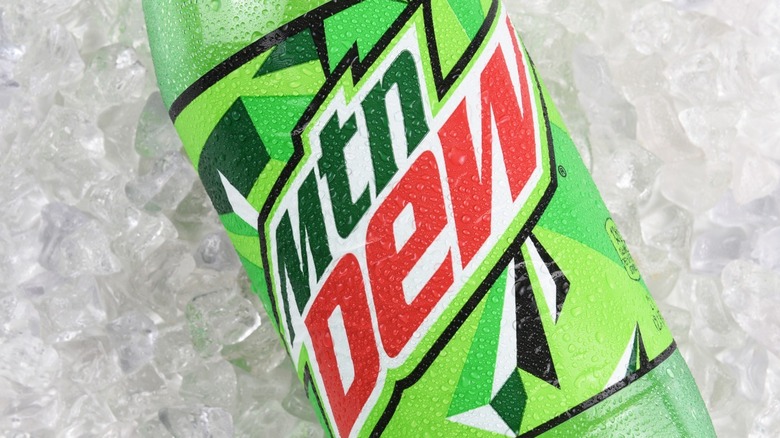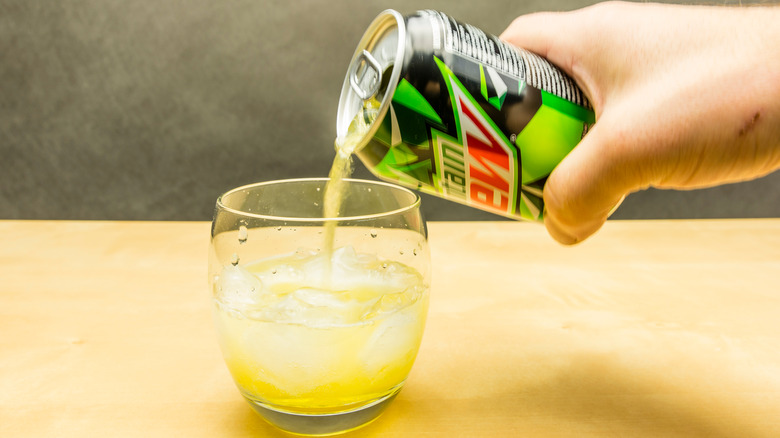Don't Believe This Mountain Dew Fertility Myth
Mountain Dew really had its moment back in 1999 when it was the fourth most popular soft drink in the U.S. (via the Los Angeles Times). The soft drink was largely marketed to young men with the "Dew the Dew" campaign in 1995 that featured action-packed ads with a group of four snowboarders who would take on giant mountains, fueled by the Dew. Young men were also impressed by the caffeine content in Mountain Dew, which helped it outshine competitors like Coca Cola's Sprite. However, its ingredients also started a few rumors.
After years of cola dominating the beverage scene, consumers were intrigued by Mountain Dew's signature radioactive yellow color, but also a little suspicious of the ingredient that creates the color, Yellow Dye No.5, also known as tartrazine. According to Vice, rumors were circulating in the late 90s that the dye lowered sperm counts and worked as a contraceptive if men drank it pre-coitus.
Though this rumor was not supported with scientific evidence, teens actually believed Mountain Dew was an effective form of birth control. In 2008, a survey of Florida teens revealed that many of them thought that drinking a shot of Mountain Dew would prevent pregnancy (via Vice).
It does not kill sperm or affect fertility at all
The rumors about Yellow Dye No. 5 gained a bit of traction in 2009. Scientists at the University of Oran, Algeria found that when mice drank an excessive amount of the yellow dye, their sperm count decreased and abnormalities increased (via Vice). However, this study has never been replicated with human subjects. The FDA reassessed tartrazine in 2009 and found no indications of adverse effects on reproduction (per Medium). Additionally, Mountain Dew is not the only soda or product that contains Yellow No.5, as it can also be found in drinks like Gatorade, Fanta Pineapple, and Surge.
Tartrazine may have been the main target in the infertility rumor mill, but rumors also spread about the soda's caffeine content having negative effects. Mountain Dew does contain slightly more caffeine than other sodas like Coca-Cola, which made it an easy target for these rumors. According to Medical News Today, however, caffeine is unlikely to affect fertility. They reference a study by the Nutrition Journal, which analyzed 28 sperm measurement studies and concluded that there is no consistent evidence of caffeine affecting sperm count or infertility.
So remember, if you "Dew the Dew" before you do the deed, you still need to use protection.

